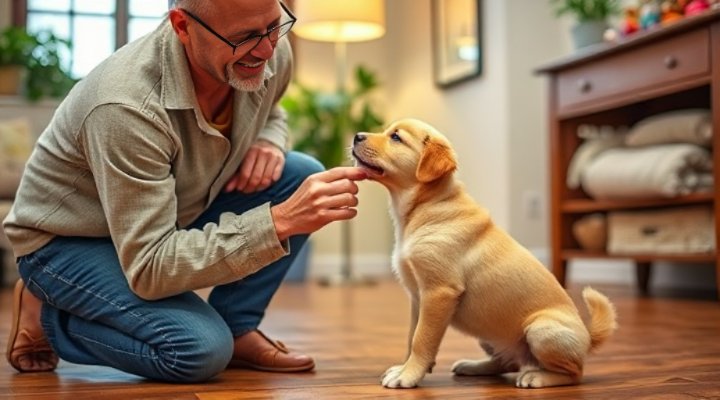Puppy training classes are a fantastic way to set your young dog on the path to becoming a well-behaved and confident adult. These classes are designed specifically for puppies, focusing on foundational behaviors and socialization skills that are crucial for their development. Whether you’re a first-time dog owner or a seasoned pet parent, enrolling your puppy in a training class can make a world of difference.

Why Puppy Training Classes Are Essential
First and foremost, puppy training classes provide a structured environment where your furry friend can learn basic commands like ‘sit,’ ‘stay,’ and ‘come.’ These commands are not just tricks; they are essential for your puppy’s safety and well-being. For example, a well-trained puppy is less likely to run into traffic or get into dangerous situations.
Moreover, these classes offer an excellent opportunity for socialization. Puppies learn how to interact with other dogs and people, which helps prevent behavioral issues like aggression or excessive shyness later in life. Socialization is especially important during the first few months of a puppy’s life, as this is when they are most receptive to new experiences.

What to Expect in a Puppy Training Class
Most puppy training classes are divided into small groups, allowing each puppy to receive individual attention. The classes typically cover basic obedience, leash walking, and potty training. Some advanced classes may even include fun tricks or agility exercises to keep your puppy engaged and mentally stimulated.
In addition to teaching your puppy, these classes also educate you on how to reinforce good behavior at home. Consistency is key when it comes to training, and the skills you learn in class will help you maintain your puppy’s progress. For more tips on potty training, check out our article on The Best Way To Potty Train A Puppy.

Choosing the Right Puppy Training Class
Not all puppy training classes are created equal. When selecting a class, look for certified trainers who use positive reinforcement techniques. Avoid trainers who rely on punishment or harsh methods, as these can harm your puppy’s emotional well-being.
It’s also important to consider the class size. Smaller classes ensure that your puppy gets the attention they need. Additionally, ask about the trainer’s experience and whether they specialize in puppy training. For more insights on finding the right training, read our guide on How to Find the Best Dog Training Classes Near You.

The Benefits of Early Training
Starting training early has numerous benefits. Puppies are like sponges, absorbing information quickly and easily. Early training can prevent common behavioral problems, such as chewing, barking, and jumping. It also strengthens the bond between you and your puppy, making your relationship more enjoyable and fulfilling.
Furthermore, a well-trained puppy is more likely to be welcomed in public places, making outings and travel much easier. If you’re interested in advanced training, you might want to explore our article on Advanced Techniques to Boost Your Dog’s Obedience Skills.

Final Thoughts
Enrolling your puppy in a training class is one of the best decisions you can make as a pet owner. Not only will your puppy learn essential skills, but you’ll also gain valuable knowledge on how to raise a happy, well-behaved dog. Remember, the effort you put into training now will pay off for years to come.
For more resources on puppy training, check out our Ultimate Puppy Training Schedule and other related articles on our website.
Related Keywords: puppy training, dog obedience, puppy socialization, dog training near me, puppy behavior
